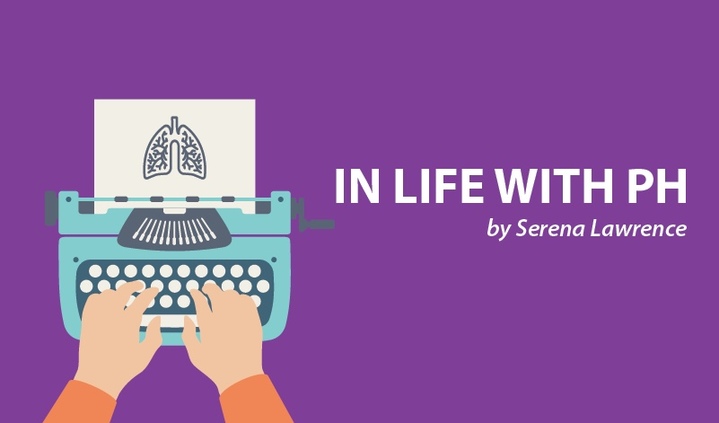Tips for Preparing for the Holidays, Part I
Written by |

It is December and that means holidays are on their way. This time of the year can be exciting, but unfortunately, they also can be stressful. A lot of extra work and energy is needed, which can be extra taxing if you have pulmonary hypertension.
Following are some hints and tips to get you through the holidays a little easier.
1. Shopping
Having pulmonary hypertension can make shopping for gifts more challenging. If you find shopping for the holidays difficult, maybe some of these tips will help.
– Avoid weekend shopping when malls are crowded. If you are able, go shopping during the day when most people are at work.
– Bring a sturdy friend with you who doesn’t mind carrying heavier bags. (Shout out to all the men in my life who carry my bags!).
– Use whatever is necessary to make your shopping experience easier, from wheelchairs and scooters to oxygen.
– Online shopping. Need I say more? You can shop from the comfort of your living room and avoid all the heavy lifting. Be sure to pick online stores that offer reasonably priced or free shipping, and guarantee your package will arrive when need it.
2. Tree-trimming
I was diagnosed with pulmonary hypertension around the holidays. (I actually had my right heart cath on Christmas Eve, so the holidays are a bittersweet time for me.) However, I have been able to watch my body go through changes, both good and bad. I went from not being able to decorate the Christmas tree, to being able to do it with oxygen, to finally being able to decorate the entire tree by myself last year without the help of medical equipment. Here are some hacks for trimming a tree that I’ve picked up along the way.
– Get help putting the tree together and putting it up.
– Use a small step stool. It can help you reach higher without straining too much. It also can be used as a stool for you to sit on while decorating the bottom of the tree.
– Work in one spot with the decorations in arm’s reach and move once it is completed.
– Avoid bending over and standing up to get each decoration. Place your decorations on a table nearby, or place a temporary table with your ornaments beside you while you decorate.
– Ask for help as needed.
– Don’t be afraid to get a smaller tree, like a tabletop one, if a larger one is too difficult to manage.
3. Rest and recharge
Preparing for the holidays can be very exhausting. Many people with pulmonary hypertension and other chronic illnesses may tire more quickly than the average bear. Because of this, it is important to rest and recharge as needed.
– Try to get a good night’s rest before an outing or event, such as New Year’s Eve.
– Turn off electronics, like your cell phone or tablet, at least 20 minutes to an hour before you want to sleep. The light omitted from these devices can make it more difficult for you to sleep because it tricks the brain into think it is day time.
– Reading before bed can help ease your mind into sleep and let go of the days’ stress. Read a few pages or a short chapter before bed.
– Don’t be afraid to have 20- or 40-minute catnap the day of an important outing if you feel like you need some extra gas in the old energy tank.
– Yoga designed for encouraging sleep may help you calm down before bed. (Many yoga routines designed for sleep are very gentle. Don’t be afraid to modify anything to make it easier.) Of course, ask your doctor before starting a new exercise routine
– Soothing scenes and sounds can help you unwind, making sleep easier to achieve.
For more tips on how to get a good night’s sleep, please read my earlier column Six Tips for Getting a Better Night’s Sleep.
Check back early next week to read part two of my tips for helping you navigate the holidays.
Note: Pulmonary Fibrosis News is strictly a news and information website about the disease. It does not provide medical advice, diagnosis, or treatment. This content is not intended to be a substitute for professional medical advice, diagnosis, or treatment. Always seek the advice of your physician or other qualified health provider with any questions you may have regarding a medical condition. Never disregard professional medical advice or delay in seeking it because of something you have read on this website. The opinions expressed in this column are not those of Pulmonary Fibrosis News, or its parent company, Bionews Services, and are intended to spark discussion about issues pertaining to pulmonary fibrosis.






Leave a comment
Fill in the required fields to post. Your email address will not be published.